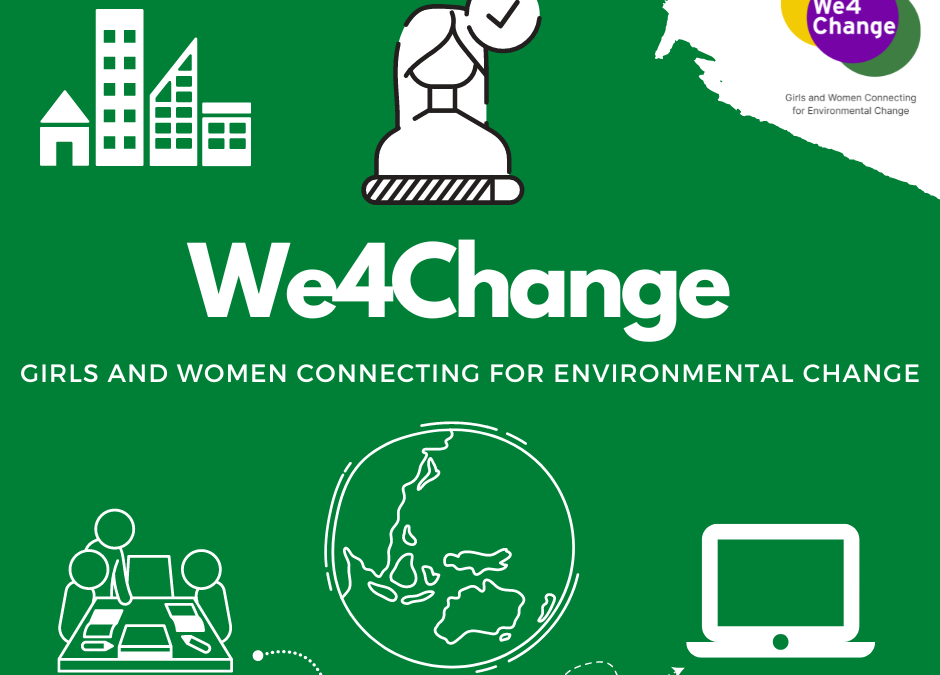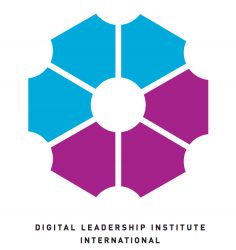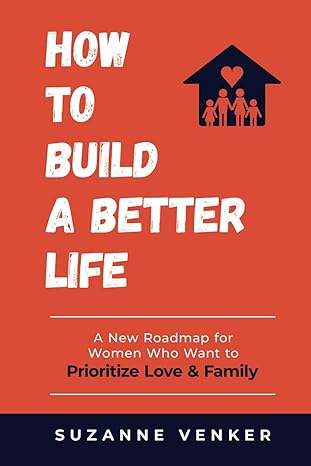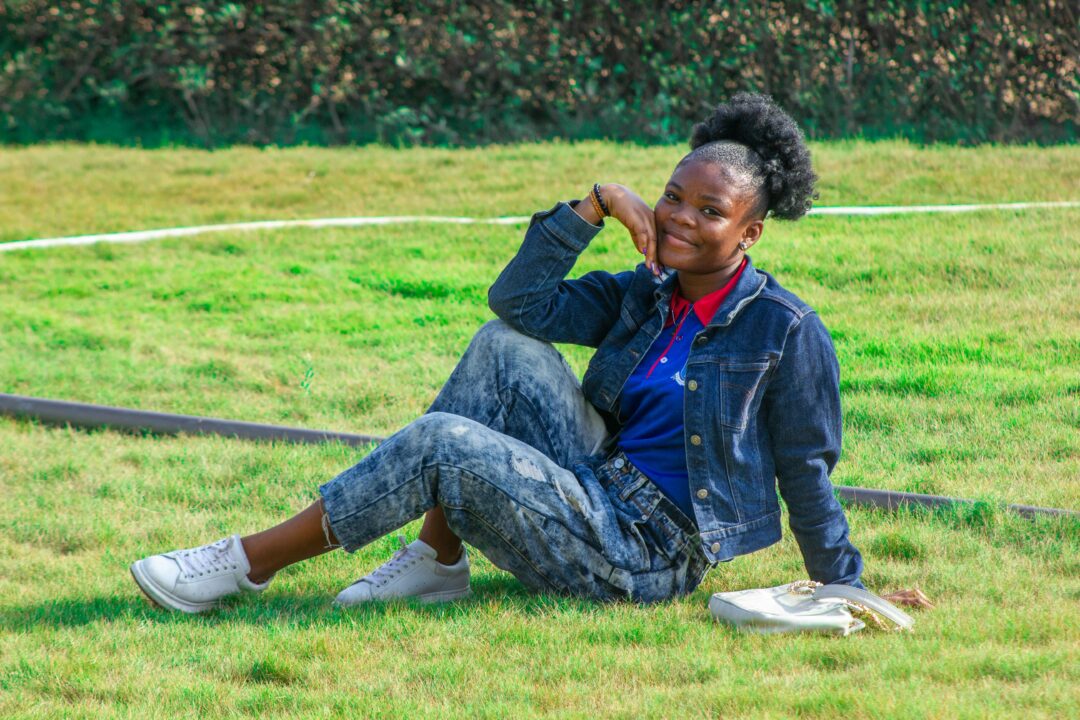We4Change Girls and Women Connecting for Environmental Change
About the Project
We4Change: “Girls and Women Connecting for Environmental Change” is a project that aims to engage, connect, and empower girls and young women (aged 15-25) from disadvantaged backgrounds by offering an innovative combination of hands-on activities, training on digital, innovation, and environmental awareness skills, problem-solving and co-creation of prototypes to address climate change and drive environmental transformation. We4Change is concentrated on responding directly to the needs of girls and young women to break down stereotypes, grow their creativity and confidence, and contribute to society. For these means, the project will offer an innovative combination of hands-on activities; training on digital, innovation, and environmental awareness skills; and problem-solving and co-creation of prototypes to address climate change and drive environmental transformation.
Partners
The project is implemented by a well-balanced and multi-disciplinary consortium of 5 partners, with complementary competencies, extended knowledge, and expertise, coming from 5 different European countries: Digital Leadership Institute (Belgium) is the Lead Partner for this initiative; STIMMULI FOR SOCIAL CHANGE (Greece); AO Asociatia pentru Dezvoltarea Tehnologiilor Informationale EDUCAT (Republic of Moldova); ZERO – Associação Sistema Terrestre Sustentável (Portugal); and Empow’Her (France).
Objectives
The project sets the following objectives:
1. Engage, connect and empower girls and young women from disadvantaged backgrounds and inspire them to drive environmental change in their communities.
2. Organize and deliver We4Change Changemakers Events and develop girls and young women digital and innovation skills; increase their environmental and active citizenship competences; build their leadership skills and confidence and encourage them to actively engage in society.
3. Train youth workers and mentors and enable them to effectively support female youth empowerment through digital action and civic change-making.
To support partners and organizations that want to introduce in their offerings an innovative and highly effective way of engaging more girls and young women in innovation, environmental action, and civic participation, the project develops a series of educational resources, as well as training for youth workers, which are freely available for use “off the shelf”.
We4Change as a Good Practice
We4Change represents a female-focused approach that responds directly to the specific gender-based needs of girls and young women, offering thus an appropriate and innovative way to empower and engage them in their communities and society at large. In sum, the following elements make the We4Change project innovative and distinctive from other initiatives:
- Female-focused: The We4Change project is Female Focused and Role Model-led as it is targeted at tackling the challenges impacting girls and young women from disadvantaged backgrounds, such as the persistent stereotypes leading to their lost self-confidence. In practice, such “safe,” female-focused environments as the ones that will be created by the We4Change project have proven most effective in dismantling stereotypes and boosting self-confidence that encourages girls and women engagement and participation.
Intergenerational: The We4Change project brings young and adult women together to collaborate on co-designing tech solutions to address climate change in their local communities thus fostering a sense of a shared purpose. - Intergenerational interactions, equal participation, mutual decision-making, and collaborative problem-solving are key elements in the We4Change project as they can empower girls by making their voices heard and valued and, as an extension, increase their engagement. Studies investigating initiatives involving collaboration between young people and adults to address problems in communities have shown a positive impact on teens’ agency, sense of belonging, competence, discourse, and civic efficacy. On this basis, the We4Change project implies the creation of intergenerational collaborations as a means to empower girls and young women, boost their confidence, and increase their civic and environmental engagement.
- Hands-on: The project adopts a “Learning by doing” approach for defusing any stereotypes, misgivings, or confidence issues. By delivering the We4Change Changemakers events young women will experience a real-life innovation process by designing an app, developing a business plan, pitching an idea, etc. which affords a strong potential to enable them not only to develop skills and confidence but also to address their stereotypes.
- Social Impact-oriented: Engaging with and learning through social action proved to have a positive impact on young people’s attitudes and engagement at large[5]. Also, studies
investigating practices of youth activism highlight the potential of such practices to empower young people by fostering their feelings of agency, belonging, competency, etc. We4Change by incorporating elements of youth activism and combining them with digital and innovation skills training formats, will break down stereotypes and increase girls’ self and collective efficacy to tap upon their competencies to drive positive change. - Community driven: The project entails the creation of supportive communities of women to enforce confidence and self-esteem and promote gender balance in civic participation. By adopting a “Community of Practice” (CoP) approach the project builds upon the dynamics of CoPs to drive participation and engagement. According to Lave and Wenger, learning, involvement, and developments in a CoP happen in social relationships. On this basis, the We4Change project invests in the creation of social relationships by bringing together young and older women to engage in joint activities, build relationships, learn from each other and thus increase a sense of ownership, belonging, and confidence which is critical for encouraging more socioeconomically disadvantages girls and women to engage in society.
- Language: specific language will be adopted to tackle the unconscious gender stereotypes.
The Digital Leadership Institute is a Brussels-based, international NGO and a recognised world leader in promoting greater participation of girls and women in strategic, innovative ESTEAM (Entrepreneurship & Arts powered by STEM) sectors.







Commentaires récents